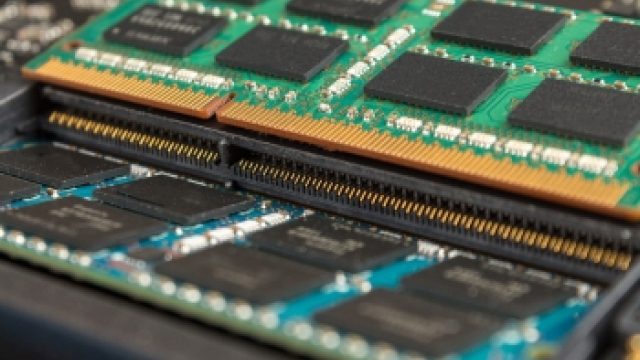When it comes to choosing the right RAM for your computer, you might find yourself facing a puzzling dilemma: 2x4GB or 1x8GB? Don’t worry; you’re not alone!
This RAM conundrum has left many scratching their heads, wondering which setup is truly better.
In this article, we’ll embark on a journey of exploration and analysis to unravel the 2x4GB vs. 1x8GB debate, helping you make an informed decision on which RAM configuration suits your needs best.
RAM Comparison: 2x4GB vs. 1x8GB
To start our journey, let’s understand the fundamental difference between these two RAM configurations.
The “2x4GB” signifies two sticks of 4GB RAM each, while “1x8GB” represents a single 8GB RAM stick.
On the surface, it might seem like a simple numbers game, but there’s more to it than meets the eye.
Exploring RAM Performance: 2x4GB vs. 1x8GB
When we delve into RAM performance, it becomes evident that the number of RAM sticks and their capacity can impact how your system handles tasks.
2x4GB RAM configuration offers the advantage of dual-channel memory, which means the system can access data simultaneously from two sticks, improving data transfer rates.
On the other hand, 1x8GB operates in single-channel mode, which can be slightly slower in certain scenarios.
Dual vs. Single Channel RAM: Pros and Cons
Dual-channel RAM brings significant performance benefits, especially ziatogel in memory-intensive tasks like gaming, video editing, and multitasking.
The increased data transfer speeds can result in a smoother overall experience.
However, it’s essential to note that the difference in real-world performance might not be overly noticeable for casual usage like web browsing or word processing.
On the other hand, 1x8GB configuration might be more future-proof in some cases.
You leave an empty slot on the motherboard, making it easier to upgrade your system down the line without discarding existing RAM sticks.
Which Wins: 2x4GB or 1x8GB RAM Setup?
As with many tech-related questions, the answer isn’t a straightforward “one-size-fits-all.”
It depends on how you use your computer. If you’re a power user, indulging in resource-intensive tasks regularly, the 2x4GB setup could provide a performance boost.
Meanwhile, if you have future upgrades in mind and seek a simpler solution, 1x8GB might be the wiser choice.
Related Article: Can I Use Two Different Brand of RAM: RAM Compatibility
Unraveling the 2x4GB vs. 1x8GB Debate
To truly understand which configuration reigns supreme, we need to analyze the various aspects that can influence your decision.
Let’s take a closer look at some critical factors:
- Cost: Often, the 1x8GB configuration can be more budget-friendly since you need to purchase only one stick. However, the price difference might not be significant in some cases.
- Upgradability: If you foresee the need to upgrade your RAM in the future, the 1x8GB setup allows for more straightforward expansion. Just pop in another 8GB stick, and you’re good to go.
- Compatibility: Some motherboards are more finicky when it comes to dual-channel configurations, and using two RAM sticks might not guarantee optimal performance. In such cases, a single 8GB stick could be a safer bet.
- Performance Intensity: Assess how demanding your tasks are. If you’re an avid gamer, content creator, or run resource-heavy applications, the dual-channel setup could offer tangible performance gains.
RAM Configurations Demystified: 2x4GB vs. 1x8GB
To make an informed decision, consider your specific needs and usage patterns. If your activities involve a mix of casual tasks and light productivity work, the 1x8GB configuration should suffice.
On the other hand, if your computer doubles as a gaming rig or a workstation for creative pursuits, the 2x4GB setup could be your ticket to smoother performance.
Maximizing Memory: 2x4GB or 1x8GB for You?
Ultimately, it all boils down to finding the perfect balance between your budget, future plans, and performance expectations.
Assess your current requirements and envision how you might use your computer in the next couple of years.
Related Article: DDR3 1600 vs 1866 RAM Showdown for Enhanced Performance
Choosing RAM Wisely: 2x4GB or 1x8GB?
When the time comes to make the call, remember that both configurations have their merits.
The 2x4GB offers immediate performance benefits, while the 1x8GB leaves room for future upgrades and can be friendlier on your wallet.
RAM Showdown: 2x4GB vs. 1x8GB Performance
Let’s dive into a performance showdown to help you better visualize the differences between these two RAM configurations.
In synthetic benchmarks and memory-intensive tasks, the 2x4GB setup tends to shine, delivering higher data transfer rates and lower latency. However, when it comes to day-to-day activities, the variance might not be as striking.
Performance Analysis: 2x4GB vs. 1x8GB RAM
In real-world usage scenarios, the performance gap between these configurations can be modest.
Unless you push your system to its limits, both setups should handle everyday tasks without breaking a sweat.
Memory Matters: 2x4GB or 1x8GB Decision
As we approach the conclusion of our RAM journey, remember that your decision should align with your unique computing habits and preferences.
Take into account the recommendations, but ultimately, go with what feels right for you.
The Great RAM Debate: 2x4GB or 1x8GB
The eternal debate of 2x4GB vs. 1x8GB RAM continues to stir discussions among tech enthusiasts and PC builders.
The truth is, there’s no definitive answer, as it heavily depends on your needs and priorities.
Decoding Dual and Single Channel RAM
Before we bid farewell to this RAM tale, let’s sum up the advantages of each configuration.
Dual-channel 2x4GB RAM presents an excellent choice for performance enthusiasts, while single-channel 1x8GB RAM suits those seeking cost-efficiency and easy future upgradability.
RAM Configurations: Making the Right Choice
In conclusion, choosing between 2x4GB and 1x8GB RAM configurations is like selecting the perfect tool for a specific job.
Analyze your requirements, weigh the pros and cons, and remember that either setup can offer an exceptional computing experience.
FAQs About Is 2 4GB Ram Better Than 1 8GB
Is it better to have 2 sticks of RAM or 1?
Having 2 sticks of RAM is generally better than having 1, as it allows your system to utilize dual-channel memory, increasing overall performance.
Dual-channel RAM provides better data transfer rates and improved multitasking capabilities.
Which is better, 2 2GB RAM or 1 4GB RAM?
In most cases, 1 stick of 4GB RAM is better than 2 sticks of 2GB RAM.
With a single 4GB stick, your system can still benefit from dual-channel memory, and it leaves room for future upgrades since you can add more 4GB sticks later.
Can I use 2 4GB RAM together?
Yes, you can use 2 4GB RAM sticks together, provided your motherboard has enough RAM slots.
It will allow you to have a total of 8GB of RAM and utilize dual-channel memory, resulting in improved system performance.
Is it better to have 4 4GB RAM sticks or 2 8GB RAM sticks?
Having 2 8GB RAM sticks is generally better than 4 4GB sticks.
With 2 larger sticks, you still get the benefit of dual-channel memory, and it leaves room for future upgrades to higher capacities if needed.
Should I put my RAM in slots 1 and 3 or 2 and 4?
The best practice is to put your RAM in slots 2 and 4, or slots 1 and 3 if your motherboard manual suggests a different arrangement.
This ensures proper dual-channel memory configuration and optimal performance.
Is 2GB RAM overkill?
No, 2GB of RAM is quite minimal for modern computing tasks. Most operating systems and applications require more RAM for smooth performance.
It’s recommended to have at least 4GB or preferably 8GB for a decent user experience.
Does it matter which 2 RAM slots you use?
Yes, it does matter which 2 RAM slots you use, especially if you want to enable dual-channel memory.
Check your motherboard manual for the recommended configuration; typically, it’s slots 2 and 4 or 1 and 3, depending on the specific motherboard.
Should I get dual RAM?
Yes, getting dual RAM (two sticks) is a good idea as it enables dual-channel memory mode, which boosts your system’s performance.
It allows the CPU to access data from two RAM modules simultaneously, leading to faster data transfer.
Is dual RAM faster?
Yes, dual RAM is faster than using a single stick.
The dual-channel memory configuration increases the memory bandwidth, allowing the CPU to access data more quickly. This results in improved system responsiveness and overall performance.
Is it OK to mix RAM sizes?
Mixing RAM sizes is possible, but it’s generally not recommended. It can cause compatibility issues and might prevent the system from running in dual-channel mode.
For the best performance and stability, use RAM sticks of the same size and speed.
How much RAM do I really need?
The amount of RAM you need depends on your specific usage. For basic tasks like web browsing and office work, 8GB is sufficient.
For gaming and more demanding applications, 16GB is recommended. Content creators and professionals may benefit from 32GB or more.
Is 64GB RAM overkill?
For most users, 64GB of RAM is overkill. It’s only necessary for extreme workloads, such as heavy video editing, 3D rendering, or running virtual machines.
For gaming and general multitasking, 16GB or 32GB is more than enough.
Does RAM improve FPS?
RAM does affect FPS (frames per second) to some extent, especially if you have insufficient RAM for the games or applications you’re running.
Upgrading from low to sufficient RAM can improve FPS, but once you have enough, further increases won’t have a noticeable impact.
Does RAM affect FPS?
Yes, RAM can affect FPS. If your system runs out of RAM while running games or resource-intensive applications, it can lead to lower FPS due to increased data swapping between RAM and storage.
Is DDR4 better than DDR5?
As of my knowledge cutoff in September 2021, DDR4 was the standard RAM type for most systems.
DDR5 was emerging but not yet widely adopted. DDR5 is expected to offer higher data transfer rates and improved power efficiency, making it better than DDR4 in terms of performance.
However, DDR5’s availability and compatibility might be limited at the time of writing.
Final Thoughts About Is 2 4GB Ram Better Than 1 8GB
The decision between 2x4GB RAM and 1x8GB RAM hinges on your specific computing needs.
Generally, 2x4GB RAM is better due to the advantages of dual-channel memory, which enhances system performance in multitasking scenarios and memory-intensive applications.
However, if your motherboard only has two RAM slots or you plan on future upgrades, 1x8GB RAM offers more flexibility for expansion.
Ultimately, consider your current requirements and future upgrade possibilities to make an informed choice.
Both options have their merits, but for optimal performance, dual-channel memory often makes 2x4GB RAM the preferred option.


